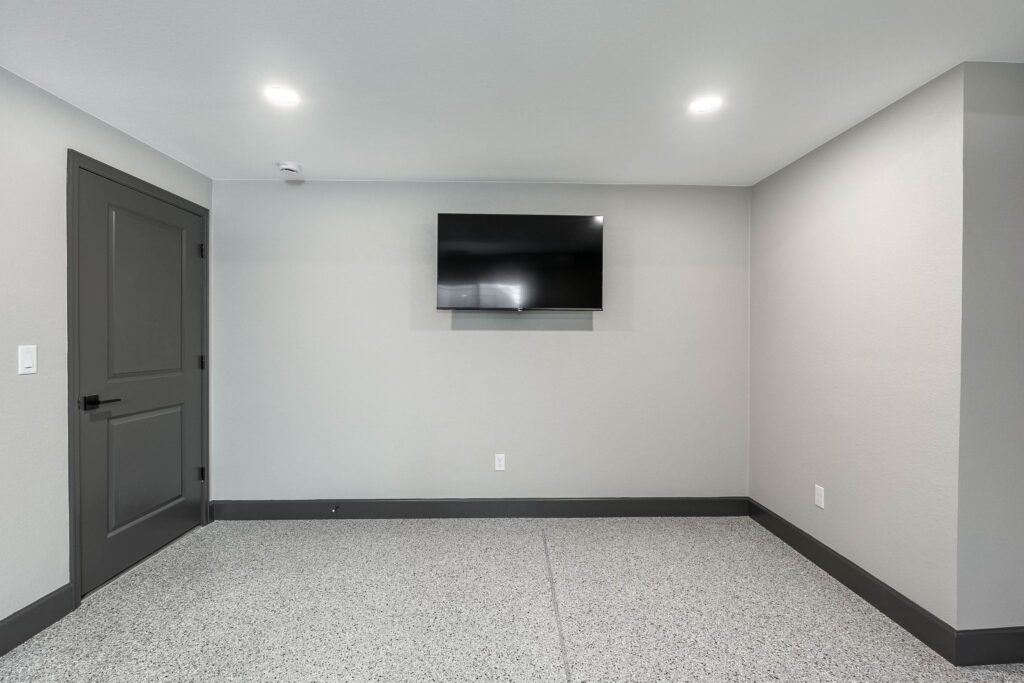Denver’s Guide To Permitting For Home Additions: Let’s Talk Paperwork (Without the Headache)
Okay, Denver friends, let’s chat about something almost as exciting as picking out new countertops: permits for your home addition. Yeah, we know. The word “permitting” might make you want to crawl back into bed. But trust us, skipping this step? That’s a shortcut straight to regret city. We’ve seen it all at Verified Builders, and we’re here to break down Denver’s permit dance into steps you can actually follow. Think of us as your friendly neighborhood permit sherpa.

Why Bother With Permits? (Spoiler: It’s Not Just Bureaucracy)
Right off the bat, let’s tackle the elephant in the room: “Do I really need a permit for this?” For most additions? Absolutely yes. Why? It’s not just about the city wanting forms filled out (though they do love those). It’s about:
- Safety: Ensuring your new space won’t collapse, catch fire easily, or electrocute anyone. Pretty important, right?
- Legality: Selling your house later? An unpermitted addition can be a nightmare, tanking your value or scaring off buyers. Banks and appraisers hate them.
- Insurance: If something does go wrong (fire, structural issue) and your addition wasn’t permitted? Your insurance company might just say, “Tough luck.” Ouch.
- Neighborly Relations: Nobody wants a knock from zoning enforcement because your awesome new second story blocks Mrs. Johnson’s mountain view.
We get it. The process feels slow. It feels nitpicky. But avoiding it is like building your dream kitchen on quicksand. It might look great for five minutes… then disaster.
Navigating the Denver Permit Jungle: Your Step-by-Step Trail Map
Alright, deep breath. How does this actually work in the Mile High City? It’s not just one form. Buckle up.
The Denver Permit Process: What You Actually Need to Do
Step 1: Know Thy Project (And Thy Zoning)
Before you sketch on that napkin, figure out what rules apply. Denver zoning dictates:
- How big your addition can be (lot coverage, height restrictions).
- How far back from property lines you need to be (setbacks).
- What you can even build in your specific neighborhood (zone district).
Pro Tip: Denver’s Zoning Map and Code are online, but reading them can feel like deciphering ancient runes. This is where chatting with a seasoned home addition contractor like us at Verified Builders saves you hours of confusion and potential re-dos. We know these codes inside out.
Step 2: Gather Your Arsenal (A.K.A. Plans & Docs)
You can’t just waltz in and say, “I want a room.” You need detailed plans. This usually includes:
- Site Plan: Showing your whole property, existing structures, and the proposed addition.
- Floor Plans: Detailed layouts of the new space.
- Elevations: How the addition will look from the outside.
- Structural Details: Especially critical for anything load-bearing.
- Energy Compliance: Denver has specific efficiency requirements.
Step 3: Submit & Survive the Review
You take your beautiful plans down to the Development Services office (or submit online – progress!). Then… you wait. Reviews take time. They might ask questions (“Clarify this beam size,” “Adjust that setback”). Don’t panic! It’s normal. Patience is key.
Step 4: Permit Issued! (Cue Confetti… Mostly)
Hooray! You get the golden ticket (the permit). Now you post it visibly at your job site. This is your permission to start construction.
Step 5: The Inspections Gauntlet
Building happens in phases, and inspections happen at each critical phase:
- Foundation: Before concrete is poured.
- Framing: After walls and roof are up, but before insulation/drywall hide everything.
- Rough-In: For electrical, plumbing, and HVAC before walls are closed up.
- Final: When everything is done and dusted (well, mostly).
Miss an inspection? You might have to tear things open. Seriously. Scheduling inspections promptly is non-negotiable.
Here’s a Quick Cheat Sheet:
| Phase | What Happens | Why It’s Crucial | What Happens If Skipped? |
|---|---|---|---|
| Pre-Application | Research zoning, sketch ideas | Avoid designing something illegal/unbuildable | Wasted time, money, redesigns later |
| Plan Prep | Create detailed architectural drawings | Ensures safety, code compliance, clarity for reviewers & builders | Permit denial, delays, costly field changes |
| Submission | Submit plans & forms to the City | Official start of the review process | No permit, no build |
| Review | City engineers/planners examine plans | Catches errors, ensures compliance with all codes (safety, zoning, energy, etc.) | Requests for Information (RFIs), delays |
| Permit Issuance | Pay fees, receive permit card | Legal authorization to begin construction | Construction is illegal, risks fines, stop work |
| Inspections | City inspector visits at key stages | Verifies work matches plans & meets code as it’s built | Potential tear-out, fines, failed final sign-off |
Why DIY Permitting Can Feel Like Herding Cats (And Why Pros Help)
Can you tackle permits yourself? Technically, yes. Should you? IMO, only if you really love paperwork, have infinite time, and enjoy deciphering municipal jargon. For everyone else? Hiring a reputable remodeling company is a sanity saver.
Think about it:
- We Speak Bureaucrat: We know exactly what plans the reviewers need to see, formatted how they like it. No guessing.
- We Anticipate Sticky Points: Is your lot oddly shaped? Near a historic district? Adding a second story? We foresee the common hiccups.
- We Manage the Process: Submitting, tracking, responding to RFIs, scheduling inspections – we handle the logistical nightmare so you don’t have to.
- We Know the “Near Me” Players: Need a specialized basement remodel contractor or a bathroom renovation contractor as part of your larger addition? As your general contractor, we have a trusted network of the nearest, qualified specialists.
At Verified Builders, navigating Denver permits is literally our day job. We streamline the headache so you can focus on the fun part: imagining your new space. Why wrestle the city when you can have experts in your corner?
Pitfalls to Dodge Like a Pro
Even with the best intentions, things can go sideways. Here’s what we see trip folks up most:
- Underestimating Timeline: Permitting takes weeks, often months. Start early. Like, before you pick out paint chips early.
- Incomplete Plans: Missing details = automatic delays. Detailed, professional plans are worth every penny.
- Ignoring HOA Rules: If you have an HOA, they might have more restrictions than the city. Check their covenants!
- Skipping Pre-Application Meetings: Denver offers these. They’re gold for getting early feedback before you spend $$$ on full drawings.
- Choosing the Wrong Contractor: A fly-by-night home remodeling guy saying “Don’t worry about permits”? Run. Fast. Check those reviews thoroughly!
Verified Builders: Your Denver Permit & Build Partners
Look, we’re not just paper-pushers. We’re builders who understand that custom remodels and additions are huge investments – emotionally and financially. Whether it’s a bathroom remodeling refresh tucked into your addition, a full whole house remodeling, or even luxury home renovations, we handle the entire journey:
- Permit Strategy: We assess your project, advise on feasibility, and map out the permit path from day one.
- Plan Perfection: Our team or trusted architects create plans designed to sail through review.
- Permit Management: We submit, track, communicate, and handle all the city back-and-forth. You get updates, not ulcers.
- Flawless Execution: Once permitted, our skilled crews build your vision to code and on schedule. Need the closest expert basement contractors? We’ve got vetted partners.
We make the complex simple because we’ve done it a thousand times right here in Denver. Why stress about finding the “home addition contractor near me” who gets permits? We’re your nearby experts. Give Verified Builders a shout – let’s chat about your dream addition and how we make the paperwork vanish (well, almost :).
Your Burning Permit Questions, Answered (FAQ)
Let’s tackle those common head-scratchers:
-
“How long does the Denver permitting process really take for an addition?”
It varies wildly based on project complexity, completeness of plans, and city workload. Simple projects might take 6-8 weeks for review. Complex ones (especially with zoning variances) can take 4-6 months or more. Starting early and having perfect plans is the best way to avoid delays. FYI, we build realistic timelines into our project schedules. -
“What happens if I build without a permit?”
Worst case? The city makes you tear it down. More commonly? You get hit with fines, stop-work orders, and major headaches when selling. You’ll also likely need to get it permitted retroactively, which is harder, more expensive, and might require opening up walls. Just don’t risk it. -
“Can my general contractor handle everything?”
A reputable, full-service general contractor absolutely should handle the entire permitting process as part of their job – that’s a key reason you hire them! Always confirm this upfront. At Verified Builders, permit management is a core part of our service. We don’t hand you a stack of forms and wish you luck.
Wrapping It Up: Your Addition Dream is Possible (Permits Included!)
So yeah, Denver’s permitting process for home additions isn’t exactly a rollercoaster of fun. But it’s a necessary step to protect your investment, your safety, and your future sanity. Trying to DIY it can feel like navigating I-25 at rush hour blindfolded.
The good news? You don’t have to go it alone. Partnering with a knowledgeable Denver remodeling company like Verified Builders transforms permit panic into a smooth, managed process. We handle the red tape so you can focus on the exciting stuff – planning your new space and maybe picking out those countertops after all. Ready to add on without the freak-out? Let’s talk. Your dream addition (with all its legally approved glory) awaits.


